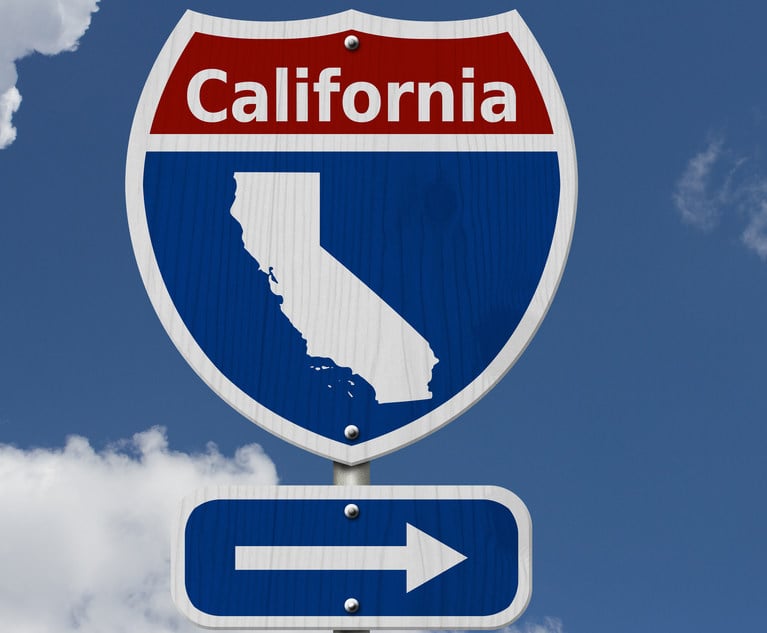A recent U.S. district court order has moved self-insurers andinsurance carriers—i.e. the primary payers—into a more prominentposition as the targets for collection efforts by Centers forMedicare & Medicaid Services ("CMS") in seeking reimbursementfor payments made from liability settlement proceeds before theMedicare lien is finally adjudicated.
|U.S. District Court Judge David Bury, sitting in Tucson, Az.,issued an order in the case of Patricia Haro, et al. v.Kathleen Sebelius, Secretary of U.S. DHHS, CV 09-134 TUC DCB,which did two significant things.
|First, it granted class-action status to a group defined as"persons who are or will be subject to [Medicare Secondary Payer("MSP")] recovery, and from whom defendant [CMS] has demanded orwill demand payment of MSP claims before there have beendeterminations of the correct amounts through the waiver or appealsprocess."
|Second, it enjoined MSP from demanding reimbursement of paymentswith threats of commencing collection actions before there is aresolution of an appeal or waiver request.
|The first potential reaction to this order was the posting ofthe following notice on the Medicare Secondary Payer RecoveryContractor ("MSPRC") website, www.msprc.info/:
The demand letter for liability insurance (includingself-insurance), no-fault insurance, and workers' compensation hasbeen temporarily suspended while this letter is under review. TheMSPRC is still working cases, and demand letters will be mailed outonce this review is complete. Review of the Rights andResponsibilities letter ("RAR") is complete. Issuance of the RAR isanticipated to resume on June 10, 2011. A copy of the revised RARwill be made available by that time on this website.
From the perspective of the liability insurer or theself-insured, the impact of this ruling on the settlement processis significant.
|Heretofore, until such time as all appeals as to the amount ofthe CMS lien were resolved or a waiver granted, claimants and theirattorneys could be compelled to pay to CMS the full amount of theestimated lien within 60 days of receipt of settlement proceeds orrisk penalties and the accrual of interest. Theclaimants' attorneys were deemed to be the recipient of settlementproceeds. Therefore, their exposure was equal to that ofthe primary payer and of the claimant.
||The ruling has done away with that. CMS is nowprevented from:
- Demanding that claimants' attorneys withhold undisputedproceeds from their clients pending resolution of disputed MSPreimbursement claims; and
- Seeking payment of an MSP reimbursement from the claimant whoreceives settlement proceeds while there is a pending appeal orwaiver request.
The judge interpreted the statute as allowing the CMS to collectdouble damages from a primary payer who settles directly with theclaimant; and collect from the beneficiary after resolution of allappeals and waiver requests.
|However, according to the judge, CMS can only collect from theclaimant's attorney to the extent that the attorney is an"end-point recipient of settlement proceeds," or by suing toenforce an equitable lien.
|The net effect of the ruling with regard to claimants' attorneysis that they are only exposed to the extent of their fees. As toany amounts over that, the claimant and the primary payer are thetargets. CMS can only pursue claimant's counsel for amounts overhis fees by asserting an equitable lien.
|The law and procedures for CMS reimbursements are evolvingquickly. It is important that primary payers and their attorneysmonitor this evolution on a national basis. Decisions aremade in jurisdictions that may be far from the home base of theprimary payer or insurance-oriented law firms that have a strongimpact on their exposures.
|It is likely that two or more years could pass before theHaro litigation and the class-action lawsuit that it hasspawned will be resolved. In the meantime, primary payers must beextremely cautious in settling any case where the MSP claim has notbeen determined or a waiver has not been received.
|If this ruling in its present form stands for anything, it isthat the primary payer will be, by far, CMS' easiest target for areimbursement action. The claimant's attorney will have no greaterreal exposure than his contingency fee. Therefore,regardless of any agreement that the attorney will be responsiblefor CMS' lien, the primary payer will be first in line to pay.
Want to continue reading?
Become a Free PropertyCasualty360 Digital Reader
Your access to unlimited PropertyCasualty360 content isn’t changing.
Once you are an ALM digital member, you’ll receive:
- All PropertyCasualty360.com news coverage, best practices, and in-depth analysis.
- Educational webcasts, resources from industry leaders, and informative newsletters.
- Other award-winning websites including BenefitsPRO.com and ThinkAdvisor.com.
Already have an account? Sign In
© 2024 ALM Global, LLC, All Rights Reserved. Request academic re-use from www.copyright.com. All other uses, submit a request to [email protected]. For more information visit Asset & Logo Licensing.








